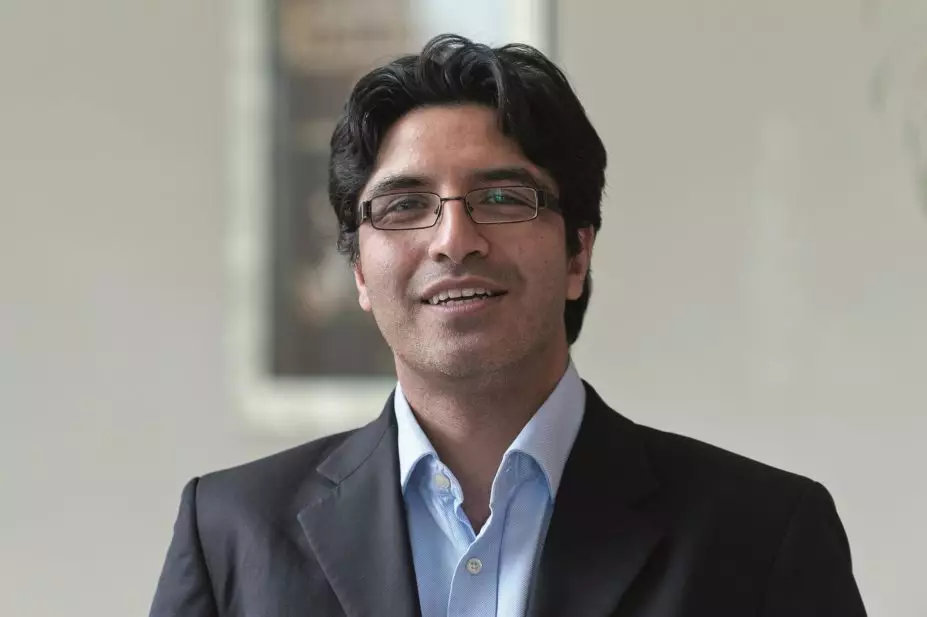
Industry pharmacist Zahid Latif is responsible for managing a £100m portfolio of investments supporting pioneering medical and health projects in the UK. He is currently head of healthcare at Innovate UK, an executive body of the government designed to support, fund and connect innovative businesses. Latif’s underpinning mantra, which has propelled him from his early work in drug discovery, is “keep your eyes open and do what intrigues you most”.
“My goal is to make the UK the best place in the world to develop innovative ways of delivering health and care in the future, and grow UK businesses that help deliver these,” he says. “This involves working in partnership with many of the key players in academia, business and the health service, and funding projects that take people out of their comfort zone to help deliver this.”
At the moment, his team is focused on projects around assisted living, stratified medicine, and cell therapy and regenerative medicine. In the project about stratified medicine — the concept of identifying the correct treatment at the right dose for individual patients — Latif’s team has brought together government bodies and medical charities to invest around £200m over five years to accelerate the uptake of this branch of medicine.
Latif has worked at Innovate UK — formerly the Technology Strategy Board — since 2007, when he joined as lead technologist for medicines and healthcare. While in this role, he developed an £18m grant funding programme to boost the fledgling regenerative medicine industry in the UK.
It was this work that led him to help establish the Cell Therapy Catapult Centre, an organisation designed to kick-start the UK’s cell therapy industry in response to recommendations made by technology entrepreneur Hermann Hauser in 2010. Since its formation in 2012, this centre has recruited more than 70 cell therapy specialists to help businesses move cell therapies to market and opened state-of-the-art laboratory facilities to help encourage collaboration on research.
Latif, who now acts as a non-executive director for the centre, describes his contribution to its development as one of the highlights of his career so far.
Joining the pharmaceutical industry
Latif’s career began at Glasgow Royal Infirmary in 1992, where he undertook his pre-registration training after his BSc in pharmacy at the University of Strathclyde.
While working as a locum in various pharmacy chains after registration, he studied for a PhD in pharmaceutical sciences, and joined the pharmaceutical industry in 1997.
“Ever since my undergraduate degree, I had been fascinated by the lectures on how drugs were discovered and developed,” he explains. “It intrigued me the amount of exciting science and just pure luck involved in many of the earlier discoveries, as well as the drive of the individuals involved.”
His first role involved isolating plant compounds for a natural products library to aid drug discovery at a company called Xenova Discovery. After two years with the company, he moved to MNL Pharma in Aberystwyth, Wales, where he led 13 staff across four teams in screening the in-house library for compounds including possible anti-cancer and anti-infective agents.
After further roles in Hampshire and western Scotland (“Getting married, moving house four times, changing jobs three times and having two kids while doing my MBA at Cardiff University was an interesting time”), where he led a marine bio-discovery programme, Latif landed the role at Innovate UK.
Get involved in pharmaceutical sciences
Latif strongly recommends pharmaceutical sciences as a career choice for pharmacists considering their options. “Pharmacists have a huge opportunity to get involved in pharmaceutical sciences because of the breadth of training we receive at the undergraduate level and during our careers,” he says. “That gives us a huge advantage as we can translate from different disciplines; we have a broader understanding of chemistry, biology and physics as it’s applied to drug discovery and formulation, as well as what it means for patients.
“My personal journey started in phytochemistry and analytical chemistry, and ended up in regenerative medicine and cell therapy, telehealth and telecare and precision medicine,” Latif explains.
Where does he want to be in five years’ time? He says: “I aim to be involved in projects that intrigue and interest me and to continue working at the cutting edge of innovation development.”

